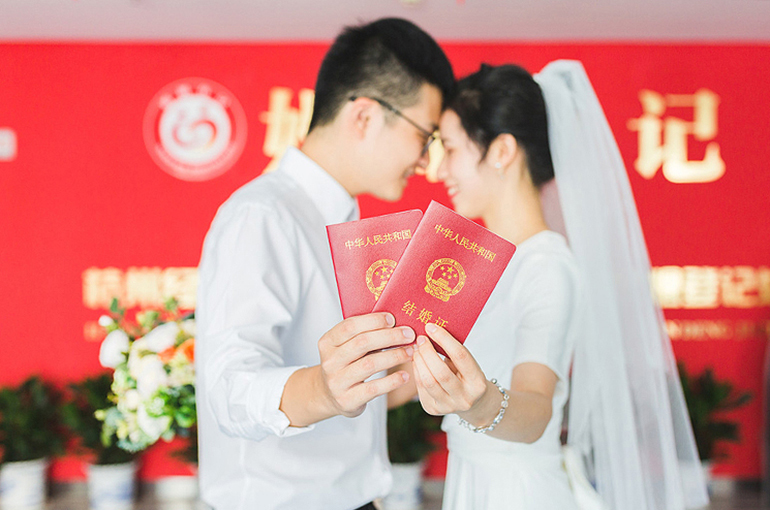 China’s Provinces Lengthen Paid Wedding Leave as Marriage, Birth Rates Slide
China’s Provinces Lengthen Paid Wedding Leave as Marriage, Birth Rates Slide(Yicai) July 16 -- Twenty-eight of China’s 34 provincial-level regions have extended statutory paid leave for couples tying the knot to as much as 30 days in an effort to counteract the nation’s declining marriage and birth rates.
Hubei issued a series of measures to support childbirth on July 14, including lengthening statutory marriage leave to 15 days from three days, making it the 28th region to extend the period of absence from work for newlyweds.
Marriage registrations fell 8 percent to 1.8 million in the first quarter from a year earlier, according to the Ministry of Civil Affairs. Last year, the figure sank 20.5 percent to 6.1 million, down from a peak of 14.5 million in 2013 and the lowest since record keeping began in 1986.
At up to 30 days, Shanxi and Gansu offer the most time off. Some provinces offer extra holidays to newly married couples who get health checkups beforehand, with Henan offering an additional seven days off.
These policies are a necessary response to migration patterns among young people, according to Prof. Jiang Quanbao from the Institute for Population and Development Studies at Xi’an Jiaotong University.
Many couples working in big cities are from different hometowns so they usually have two wedding ceremonies, Jiang noted, so they need more time for that and the extended leave also gives them the option of doing some extra travel.
The marriage rate has been hit by a number of factors in recent years, including concerns about the cost of living and finding employment. There has also been a decrease in the marriage-age population amid a continually aging demographic.
In response to the falling birth rate and aging population, China revamped its family‑planning regime in 2021 to allow couples to have up to three children. The move came five years after the country lifted its one-child policy.
Since then, local governments have taken steps to incentivize marriage and childbearing in line with the national strategy.
Other measures have been introduced to make getting wed easier. The latest version of China’s marriage registration regulations, which took effect in May, canceled the requirement for them to be registered in the same location as the couples’ household registration. People can now register in cities where they work, or elsewhere.
Editors: Dou Shicong, Tom Litting